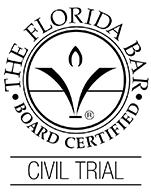Dealing with insurance companies after an accident or property damage can be frustrating and confusing. When you faithfully pay your premiums, you expect your insurance company to fulfill their obligations when you need them most. Unfortunately, some insurers prioritize profits over policyholder needs.
We at Dismuke Law have seen numerous cases where insurance companies engage in questionable tactics to minimize or avoid paying legitimate claims. Understanding the warning signs of bad faith insurance practices can help you protect your rights and take appropriate action when necessary.
Unreasonable Delays in Claim Processing
Insurance companies have a duty to handle claims promptly and efficiently. While some investigation time is reasonable, excessive delays often indicate potential bad faith practices. Watch for these red flags:
- Multiple unnecessary requests for documentation you’ve already provided
- Extended periods with no communication about your claim status
- Constant reassignment of your claim to different adjusters
- Failure to acknowledge receipt of your claim or supporting documents
Insurers may use delay tactics, hoping you’ll become frustrated and accept a lower settlement or abandon your claim entirely. Florida law requires insurance companies to acknowledge claims and communicate decisions within specific timeframes. Persistent violations of these timeframes may indicate the company is acting in bad faith.
Inadequate Investigation of Your Claim
Your insurance company has an obligation to thoroughly and fairly investigate your claim. Signs of an inadequate investigation include:
- Adjusters who don’t thoroughly inspect damage or injuries
- Failure to interview relevant witnesses
- Ignoring medical reports or expert opinions
- Making decisions based on incomplete information
- Refusing to consider evidence that supports your claim
A proper investigation should gather all relevant facts before reaching a decision. When insurers cut corners or conduct one-sided investigations focused only on finding reasons to deny coverage, they may be operating in bad faith.
Lowball Settlement Offers
While insurance companies naturally seek to minimize payouts, offers significantly below the actual value of your claim may constitute bad faith practices. Watch for:
- Initial offers far below your documented losses
- Refusal to explain how they calculated your settlement offer
- Misrepresenting policy benefits or coverage limitations
- Pressuring you to accept a quick settlement before you understand the full extent of the damages
- Threatening that you’ll receive nothing if you don’t accept their offer
Insurance companies must make reasonable offers based on actual damages and policy coverage. When they deliberately undervalue claims without justification, they may be violating their duty of good faith and fair dealing.
Misrepresentation of Policy Terms or Coverage
Your insurance policy is a contract, and the company must accurately represent its terms. Bad faith practices in this area include:
- Citing policy exclusions that don’t exist or don’t apply to your situation
- Misinterpreting clear policy language to avoid payment
- Failing to disclose important policy benefits you’re entitled to
- Changing interpretations of coverage between the time you purchased the policy and filed a claim
- Refusing to provide you with a complete copy of your policy upon request
Insurance contracts can be complex, but companies shouldn’t exploit this complexity to mislead policyholders about their coverage. If you suspect your insurer is misrepresenting your policy, having an attorney review the language may reveal bad faith practices.
Threatening or Coercive Communication
Insurance companies should maintain professional communications with policyholders. Concerning behavior includes:
- Threatening language in written or verbal communications
- Suggestions that you’ll face negative consequences for pursuing your claim
- Implying that involving an attorney will harm your case
- Making personal attacks or attempting to intimidate you
- Excessive or harassing contact designed to wear you down
These tactics aim to discourage you from pursuing your full rights under your policy. If you experience such treatment, documenting all communications becomes especially important as evidence of potential bad faith behavior.
How We Can Help With Bad Faith Insurance Claims
At Dismuke Law, we understand the frustration and financial hardship that can result from insurance bad faith practices. Our experienced attorneys know how to recognize and address these tactics to protect your interests and help you receive the compensation you deserve under your policy.
If you believe your insurance company is treating you unfairly or acting in bad faith, don’t face them alone. Contact Dismuke Law today for skilled representation from attorneys with a proven track record of successfully challenging insurance company misconduct. Call us at (863) 250-5050 or fill out our contact form to schedule a free consultation about your situation.


![cftla-member[2]](https://www.1800askdave.com/wp-content/uploads/2022/03/cftla-member2.png)
![cftla-member[3]](https://www.1800askdave.com/wp-content/uploads/2022/03/cftla-member3.png)










